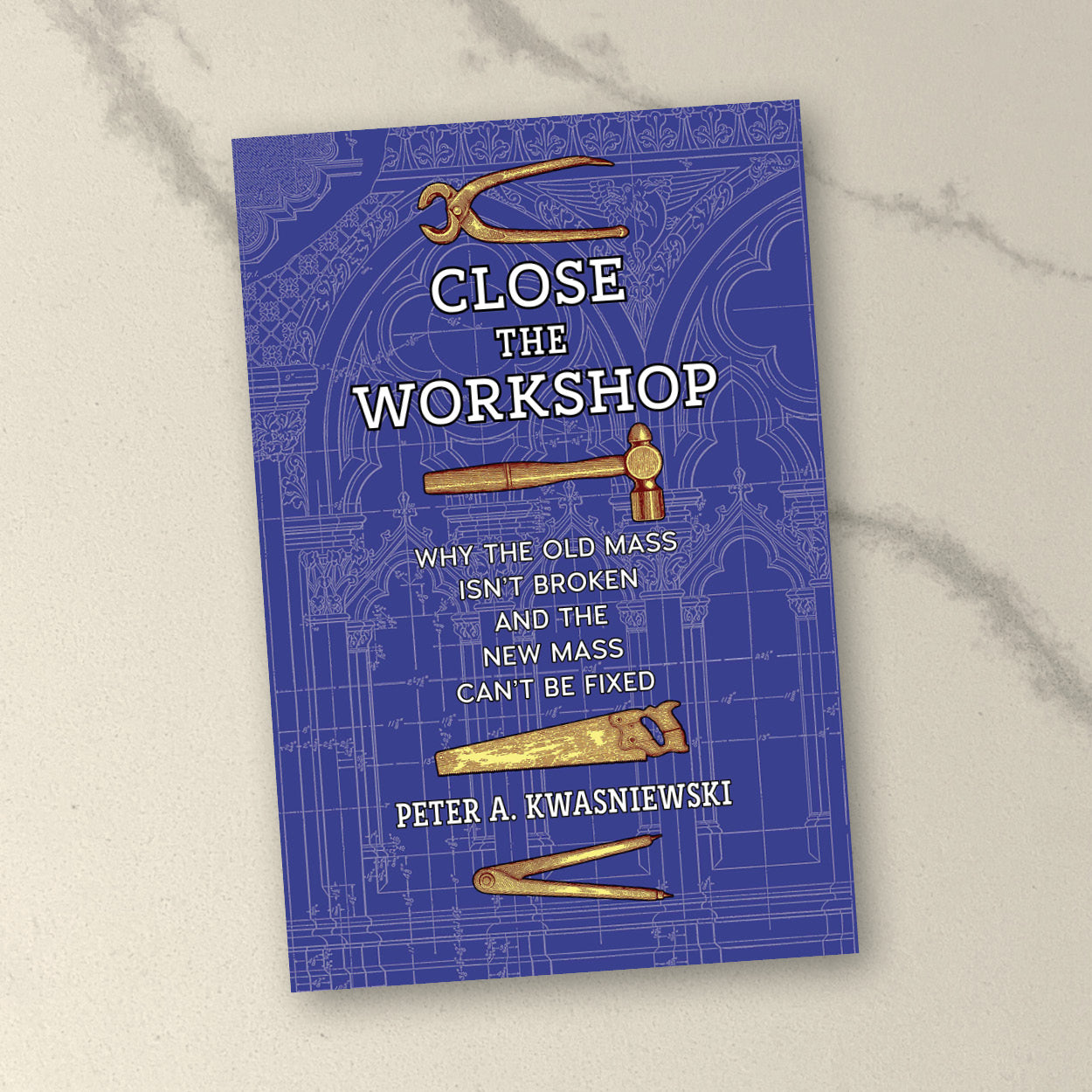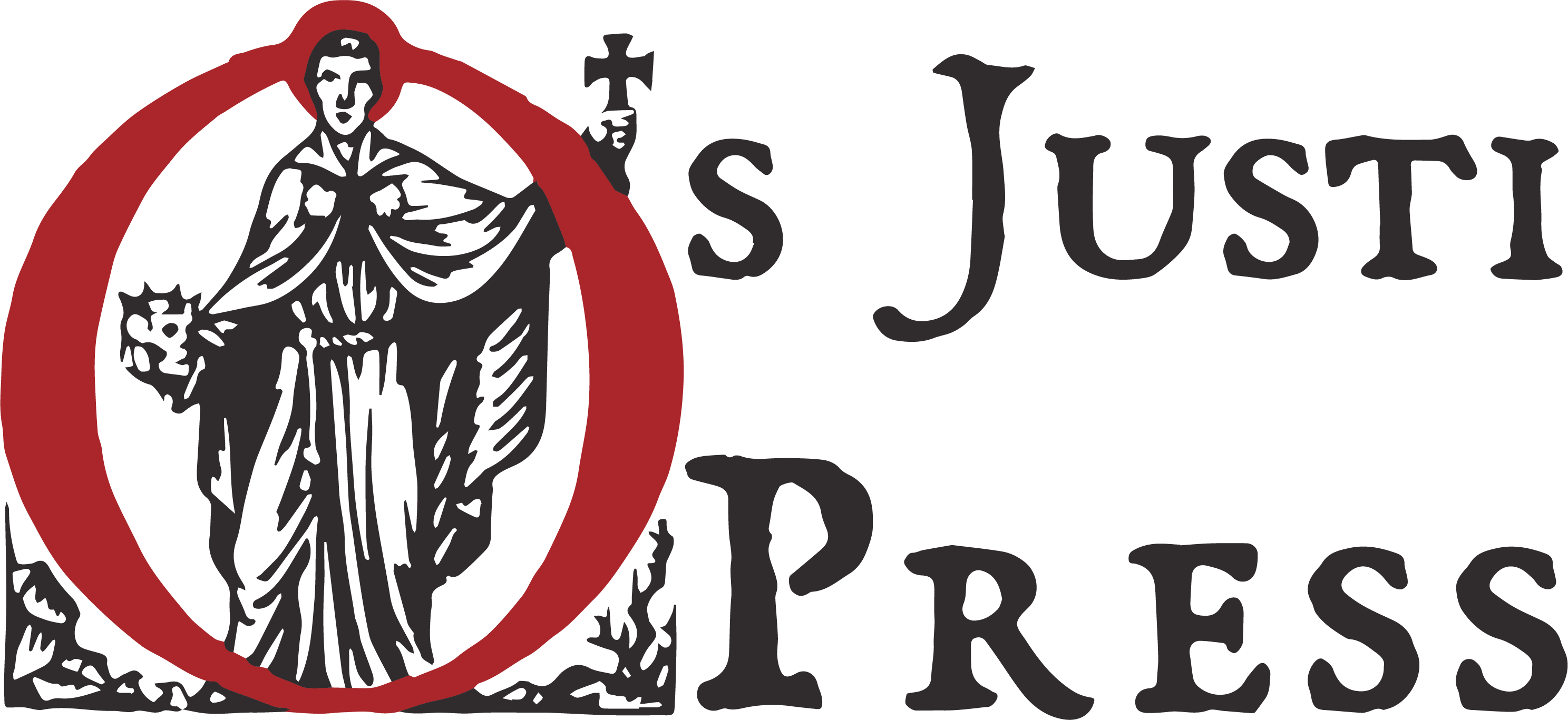Os Justi Press
Close the Workshop
Close the Workshop
Couldn't load pickup availability
[This book is published not by Os Justi Press but by Angelico Press. However, Os Justi Press offers its customers signed copies of Dr. Kwasniewski's books.]
The Mass of Paul VI is so deeply flawed that it cannot be repaired from within, whether by copious helpings of smells and bells, by arbitrary attempts at traditionalizing, or by an official “reform of the reform”; and the Roman Mass inherited from the Age of Faith did not (and does not) need to be “reformed” along antiquarian or pastoral-utilitarian lines, as it fulfills the highest act of religion in a fitting manner perfected over many centuries of prayerful practice. The liturgical revolution, driven by ideology, culminated in balkanization, banality, and boredom; its fabrications must be retired from use, and the traditional rite must be restored to its rightful place of honor in the Church of the Latin rite.
Such are the bold claims defended in Close the Workshop: Why the Old Mass Isn’t Broken and the New Mass Can’t Be Fixed, in which Peter Kwasniewski refutes the reformers’ own case for reforming the old rite and illustrates the subtle dangers to which clergy and laity are exposed by attempts at “doing the new rite reverently.” Simultaneously he reminds traditionalists that they should aspire to the noblest possible celebration of the Mass, always faithfully observing the rubrics and resisting bad habits that interfere with the rite’s full splendor and efficacy: unseemly haste, minimalism, ineptitude, and the itch for pastoral experimentation.
If the Catholic Church in the West is ever to recover her internal soundness and external cultural influence, her shepherds and her flocks must let the ill-advised Council of the 1960s and the Bauhaus liturgy fabricated in its name lapse into obsolescence, so that the perennially fresh theology of the Council of Trent and the immortally beautiful liturgy of the Roman Church may once again flourish unfettered.
PRAISE FOR THIS BOOK
“We are grateful to Dr. Kwasniewski for showing to the readers of our day the inestimable treasure of the Catholic liturgical tradition, which, in its prayers and rites, most perfectly reflects the integrity and the ineffable mystery of the Faith, and at the same time for exposing patiently and no less thoroughly the severe flaws of its attempted replacement.” —Most Rev. Athanasius Schneider, Auxiliary Bishop of Astana
“David slaying Goliath is the only apt metaphor for Dr. Kwasniewski. At the Goliath of systematic lies perpetuated about the traditional Mass, he has aimed the five shiny stones of his prodigious scholarship. He has mortally wounded the giant of liturgical mendacity; it is hard to see how any thinking Catholic could ever grant it credibility again.” —Fr. John A. Perricone, Iona University, New Rochelle, New York
“Dr. Kwasniewski has produced a volume that demands a verdict. Agree or disagree with this work as you see fit—but it cannot with integrity be dismissed or ignored.” —Fr. Robert McTeigue, S.J., host of The Catholic Current
“Most of Kwasniewski’s conclusions in this volume are diametrically opposed to those of the Vatican, which is all the more reason they should be read—not as a proud act of dissent but in order to gain a different perspective, one that raises serious questions about a matter vital to the Church.” —Michael P. Foley, Associate Professor of Patristics, Baylor University
“An impassioned, uncompromising defense of the traditional Latin Mass…. An encyclopedic review of the current issues in the Catholic traditionalist movement, both clarifying fundamental theological principles and offering practical advice on celebrating the TLM today.” —Stuart Chessman, Chairman, Society of St. Hugh of Cluny
“The author makes an important contribution to a question that has become only more urgent over time: Did we certainly and genuinely need a substantial reconfiguration of liturgical rites that exchanged a venerable patrimony for a manufactured product that was (or was at least intended to be) adapted to ourselves and to the zeitgeist—or do we actually need to reform ourselves and our culture, adopting as our own a tradition passed down from time immemorial?” —Shawn Tribe, Editor, Liturgical Arts Journal


